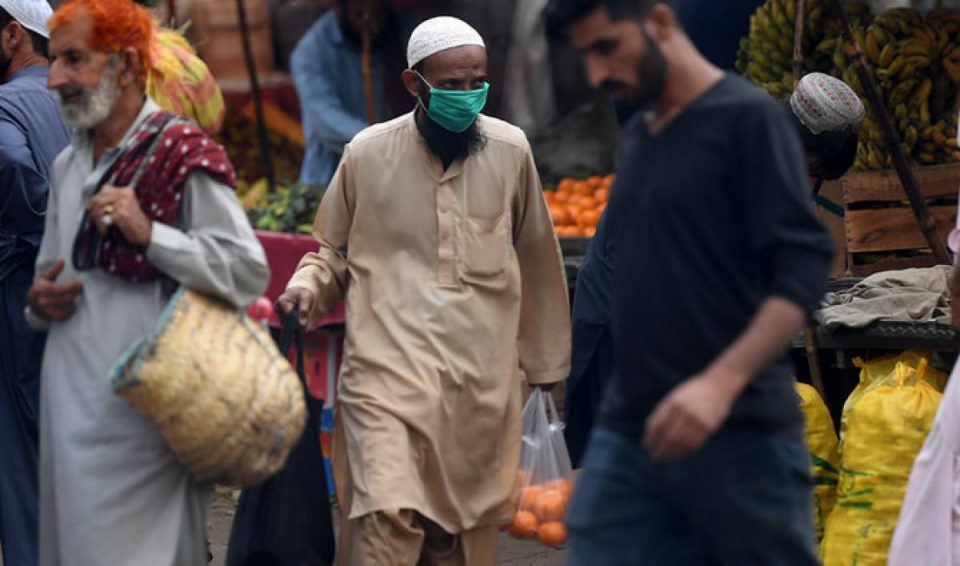As the country remains under a lockdown to battle a daunting coronavirus outbreak, local charities are playing a role to stem the economic burden on the low-income groups providing them rations and medical assistance.
A grinding economic slowdown, a direct result of the global COVID-19 outbreak, has particularly hit the country’s population, which lives below poverty line.
Al-Khidmat Foundation, Pakistan’s one of the largest charity organisations, is distributing ration, enough for 15 days, among the families in the low-income areas, in addition to soaps, sanitizers, and face masks across the country.
The foundation, which also runs a countrywide chain of charity hospitals, including a modern facility in the southern desert area of Thar, has designated isolation wards to handle the coronavirus cases.
“Labourers, and daily wages workers are the worst hit, whose livelihood has been badly affected by the coronavirus pandemic. Their immediate worry is [about] food, which we are trying to provide them,” Qazi Sadaruddin, the head of Al-Khidmat’s community services cell, told Anadolu Agency.
Small and big hospitals across the country, he added, had been designated to tackle the coronavirus outbreak, of which two had been taken over by the government’s trained staff.
The foundation, which came into the spotlight for its relief operations for the affectees of the 2005 deadly earthquake in Pakistani-administered Kashmir, and 2010, and 2011 floods in the country, said it already had a comprehensive data of needy families.
“The advantage we, and other big charity organisations have is that we have been involved in the relief activities for decades. We know where and when rations need to be distributed,” Sadaruddin said, adding “Insha Allah [God willing], no one will die of hunger in Pakistan due to lockdown.”
Edhi Foundation, a relief agency founded by the internationally-acclaimed social worker, Abdul Sattar Edhi, is importing coronavirus testing kits, which will be provided to the government and charity hospitals in the country’s remote areas, in addition to distributing rations among needy families.
The charity, which runs a nationwide ambulance service, has made a bulk of its ambulances available to transport the suspected virus patients to the hospitals and quarantine centres across the country.
“We are working 24/7 to assist the government in battle against coronavirus,” said Faisal Edhi, the foundation’s head.
“Our 1,500 ambulances are available 24 hours to transport the suspected patients to the hospitals and quarantines across the country,” he told Anadolu Agency.
Saylani Welfare, another countrywide charity, has introduced a mobile phone application and telephone service, where needy families can register themselves to get ration and other essential items.
Also, volunteers from Alamgir Welfare Trust, Pakistan Islamic Medical Association — a nationwide group of professional doctors — Baitul Salam Trust, and other non-governmental organisations (NGOs) are assisting the government staff in and outside several centres where thousands of suspected patients, mostly pilgrims from neighbouring Iran, have been quarantined.
Prime Minister Imran Khan announced a multi-billion-rupee economic package to provide relief to citizens, particularly low-income groups whose livelihood has been badly affected by the coronavirus pandemic.
Pakistan’s top religious authority called for the early distribution of Zakat — an obligatory annual charity in Islam — to support those with low incomes, who are most vulnerable to an imminent economic slowdown due to the coronavirus pandemic.
The Council of Islamic Ideology, a religious advisory body for the country’s parliament, urged the rich to give their zakat, which accounts for 2.5% of the total yearly savings in the form of cash, gold or silver, earlier than usual.
Some 21 people have recovered, according to data compiled by the U.S.-based Johns Hopkins University.

